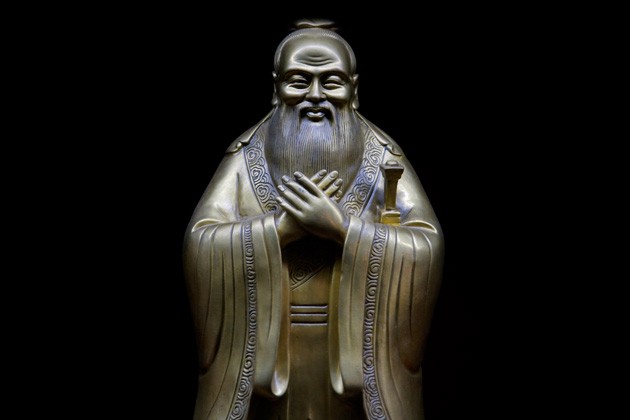An emerging trend among young Chinese students, with some as young as four, is studying traditional Chinese culture, including Confucianism and Chinese calligraphy, instead of learning more Western activities.
The Chengxian Guoxue Institute in Guozijian, China's highest education institute from the 13th to 19th centuries, is one such place where the youth of the country have been going to learn more about their cultural roots.
Chen Quanjin, a 6-year-old boy, spent his summer at the institute studying various aspects of Chinese culture. He mastered the Dizigui, a 300-year-old Chinese book that states the standards for being a good student and child.
"Older siblings should befriend younger ones; younger siblings should respect and love older ones. Siblings who keep harmonious relationships among themselves are being dutiful to their parents," Chen said, quoting from the Dizigui.
According to the institute's director Ji Jiejing, the Chengxian Guoxue Insitute is trying to expand the exposure of children, mostly aged four to 10, to traditional Chinese culture by introducing them to Chinese calligraphy, Confucianism and other traditional values.
"Traditional Chinese culture should not lose its grip on young Chinese as it is good for their moral development and the cultivation of their character. Some wisdom delivered through the Chinese classics might help children deal with the challenges in their own lives," said Ji.
The institute's popularity is indicative of the recent rise in interest in traditional culture. Until recently, the English learning trend among Chinese students has caused a neglect of the mother tongue.
Currently, the school system, including the Ministry of Education, is trying to incorporate traditional Chinese culture into the curriculum.
In April 2014, the Ministry of Education issued guidelines for teaching traditional Chinese culture from elementary school until college, requiring more lessons of traditional culture, especially in primary and middle-school textbooks.
President Xi Jinping has also expressed the need to bring back traditional culture when he visited Beijing Normal University in Sept. 2014, voicing disapproval over decisions to remove classic Chinese essays and poems from Chinese textbooks.






















